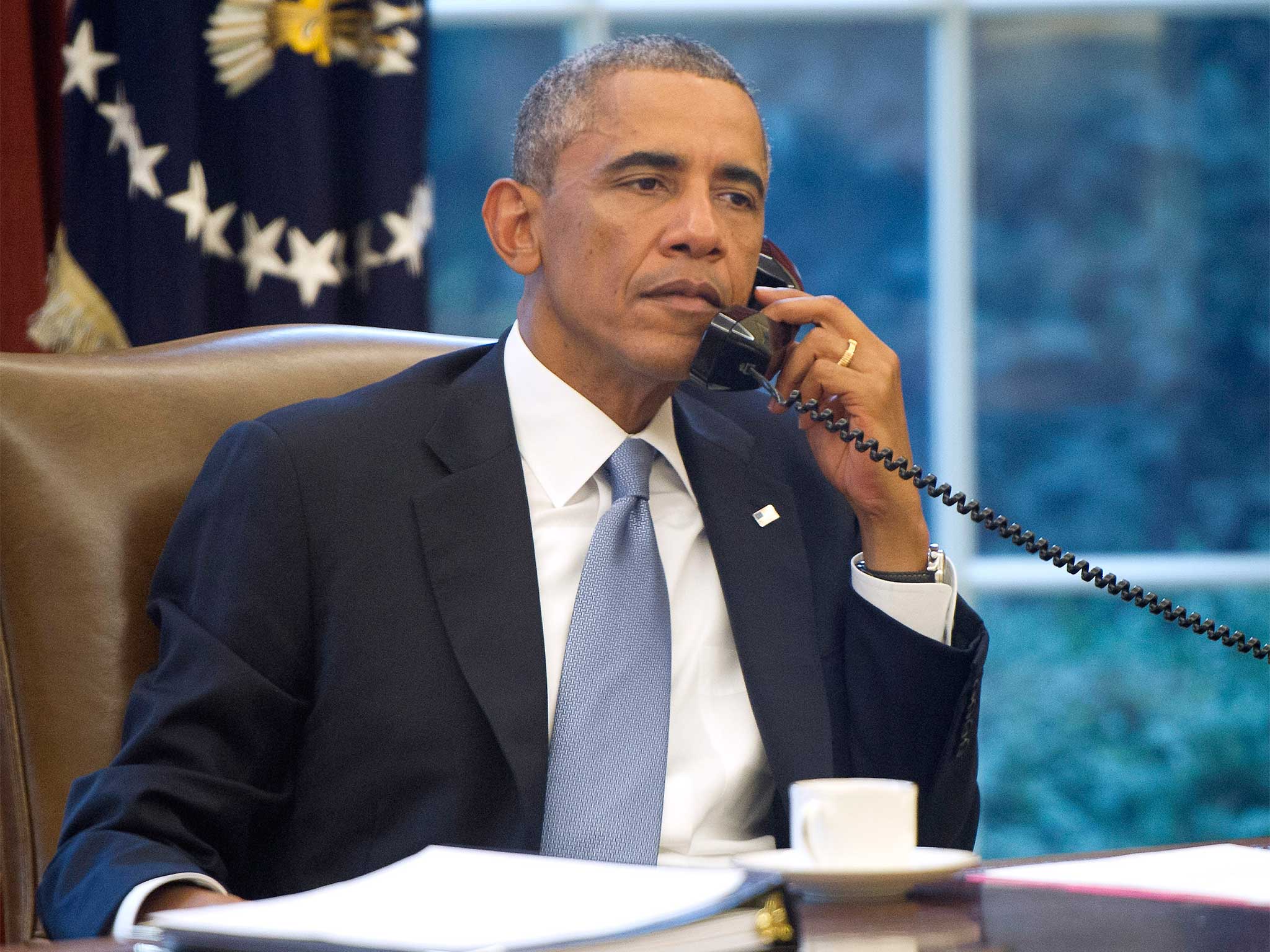9/11 anniversary: Barack Obama unveils 'degrade and ultimately destroy' strategy against Isis
He vows to target militants 'wherever they exist' but rules out deploying US combat troops

Your support helps us to tell the story
From reproductive rights to climate change to Big Tech, The Independent is on the ground when the story is developing. Whether it's investigating the financials of Elon Musk's pro-Trump PAC or producing our latest documentary, 'The A Word', which shines a light on the American women fighting for reproductive rights, we know how important it is to parse out the facts from the messaging.
At such a critical moment in US history, we need reporters on the ground. Your donation allows us to keep sending journalists to speak to both sides of the story.
The Independent is trusted by Americans across the entire political spectrum. And unlike many other quality news outlets, we choose not to lock Americans out of our reporting and analysis with paywalls. We believe quality journalism should be available to everyone, paid for by those who can afford it.
Your support makes all the difference.On the eve of the 13th anniversary of the 9/11 attacks, US President Barack Obama has set out his administration’s strategy for military action against the Islamic State (Isis) in a televised address to the American public.
Vowing to target Isis militants “wherever they exist,” he said: “Our objective is clear: We will degrade, and ultimately destroy, [Isis] through a comprehensive and sustained counter-terrorism strategy.”
In the speech, broadcast from the White House last night, Mr Obama outlined plans that will begin by expanding US airstrikes against the Sunni militant group, from Iraq into northern Syria, where its camps and fighters are largely based. Isis recently declared the establishment of an Islamic state, or caliphate, after seizing control of swathes of both countries. Around 100 Americans are thought to have travelled to the Middle East to join the group.
The President faced criticism from political opponents last week when he admitted that his administration had yet to decide on a strategy to combat the Isis threat. Last night Mr Obama described that strategy, since formulated, as “a steady, relentless effort to take out [Isis] wherever they exist, using our air power and our support for partner forces on the ground.” He added: “This strategy of taking out terrorists who threaten us, while supporting partners on the front lines, is one that we have successfully pursued in Yemen and Somalia for years.”
According to a report from the New York Times, Pentagon officials believe the planned long-term intervention could last as long as three years, outlasting Mr Obama’s presidency. The US-led campaign is likely to face multiple military and political complications, such as how to defeat Isis without appearing to assist Syrian President Bashar al-Assad’s side in his country’s vicious civil war.
The US Secretary of State, John Kerry, is currently in the Middle East to drum up regional support for the campaign against Isis, and on Wednesday met with the new Iraqi Prime Minister, Haider al-Ababi. Speaking in Baghdad, Mr Kerry said the US would help prepare Iraqi security forces to fight the militants. The President ruled out deploying US combat troops, but pledged to send 475 US service members to provide training, intelligence and equipment to Iraqi and Kurdish forces.
Mr Kerry is expected to meet with officials from 10 Arab states and Turkey during his trip, which comes on the heels of last week’s NATO meeting in Wales, where the US recruited nine international allies including the UK to the anti-Isis effort. “America will lead a broad coalition to roll back this terrorist threat,” Mr Obama said last night.
His speech also sought to shore up US public support for military action, which has grown following the recent beheadings of James Foley and Steven Sotloff, two American journalists kidnapped in Syria. Isis militants claimed the murders were in retaliation for US airstrikes on their forces in neighbouring Iraq; Mr Obama said the US and its allies have launched more than 150 such strikes to date. An NBC News/Wall Street Journal poll this week found that 61 per cent of Americans believe further military action would be in the national interest.
The President briefed senior members of Congress on the plan at the White House on Tuesday. But with bad memories of the recent wars in Afghanistan and Iraq still lingering in the public mind, and with the midterm Congressional elections mere weeks away, the issue is considered too divisive to be put to a vote by Democrat and Republican leaders alike. Mr Obama said he has the authority to launch a wider offensive against Isis without Congressional approval, though he urged Congress to provide funds to train and equip the moderate Syrian opposition against Isis and President Assad’s forces.
Join our commenting forum
Join thought-provoking conversations, follow other Independent readers and see their replies
Comments